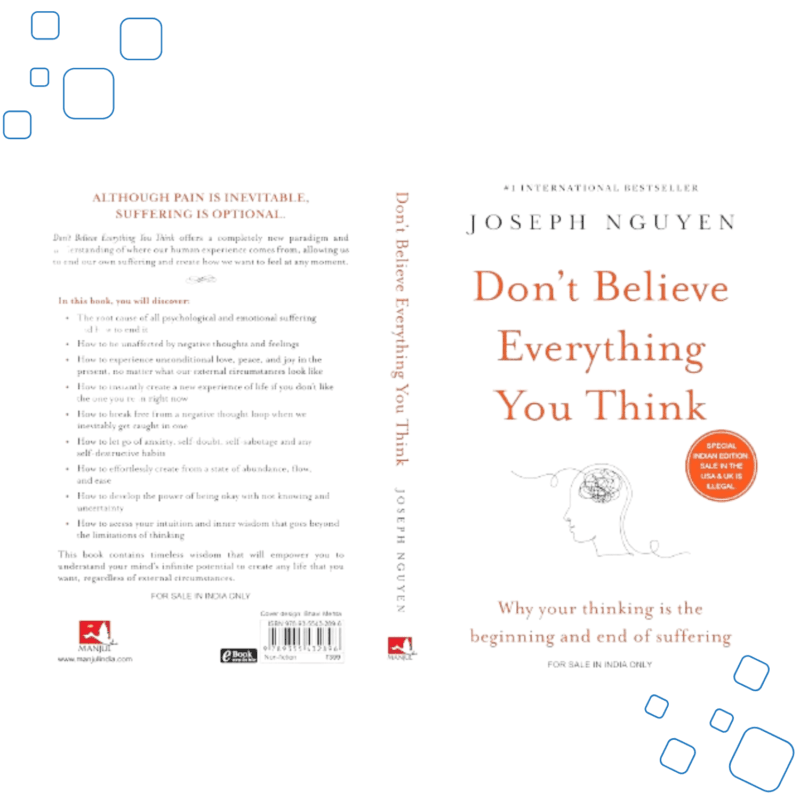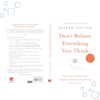Description
Don’t Believe Everything You Think Our thoughts shape how we experience the world. They guide our decisions, perceptions, and interactions with others. However, not everything we think is accurate, rational, or beneficial. The phrase “don’t believe everything you think” invites us to challenge the credibility of our thoughts and recognize their fallibility.
We often assume that our thoughts reflect reality, but many are colored by biases, emotions, and experiences. Cognitive distortions—like overgeneralizing, catastrophizing, or black-and-white thinking—can warp our perception of reality. For instance, a person might think, I always fail, after one setback. In reality, this is an exaggeration, but the thought might feel true, causing unnecessary stress or discouragement. Believing such thoughts can trap us in negative patterns of thinking, limiting our potential.
Moreover, our brains are wired to make quick judgments for survival, often relying on heuristics or mental shortcuts. While this ability helped our ancestors avoid danger, it can mislead us in modern life. We might assume someone dislikes us because of a brief glance or interpret a small mistake as a sign of incompetence. These quick judgments aren’t always reflective of the full picture but can impact how we feel and react.


















Reviews
There are no reviews yet.